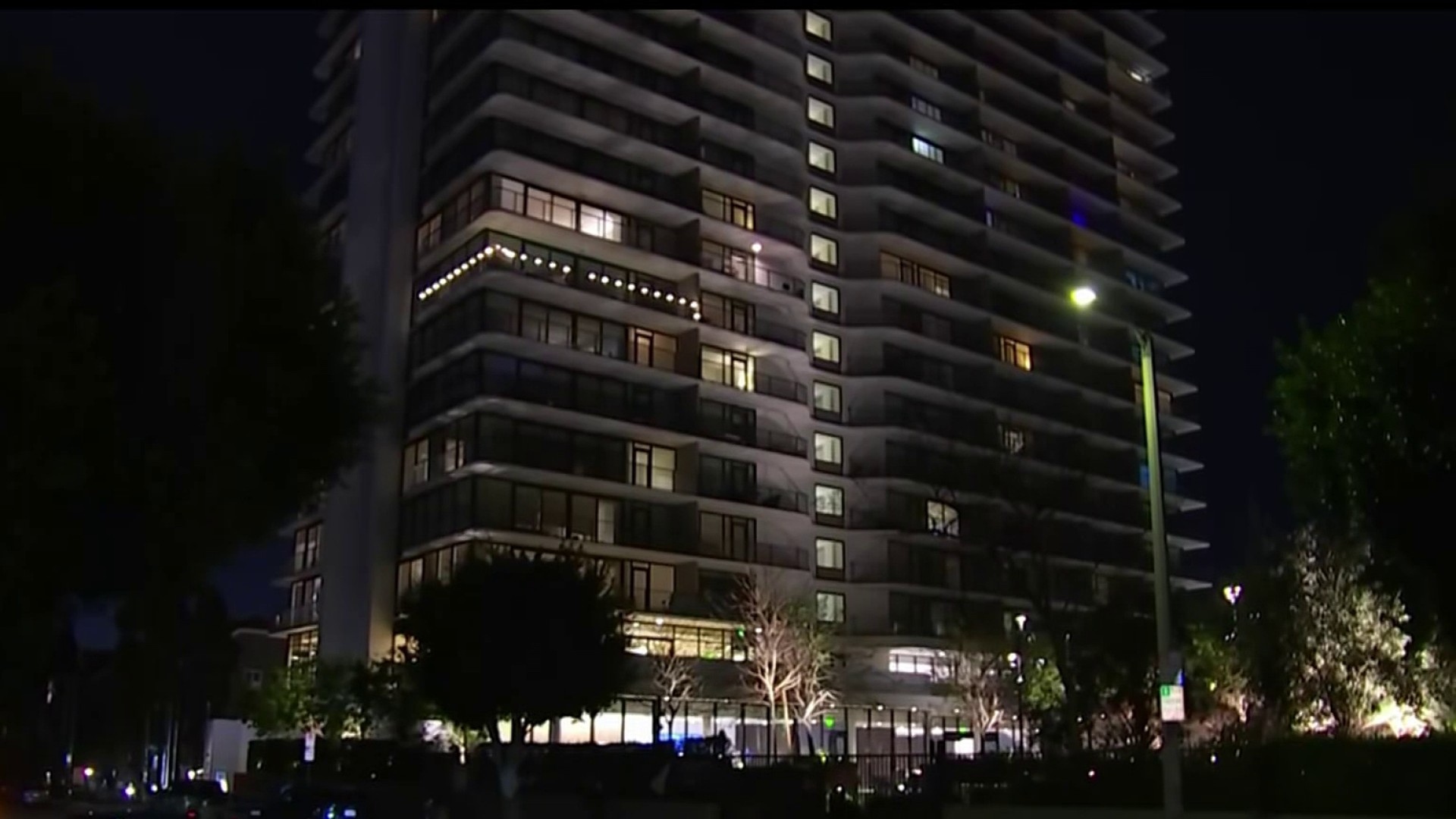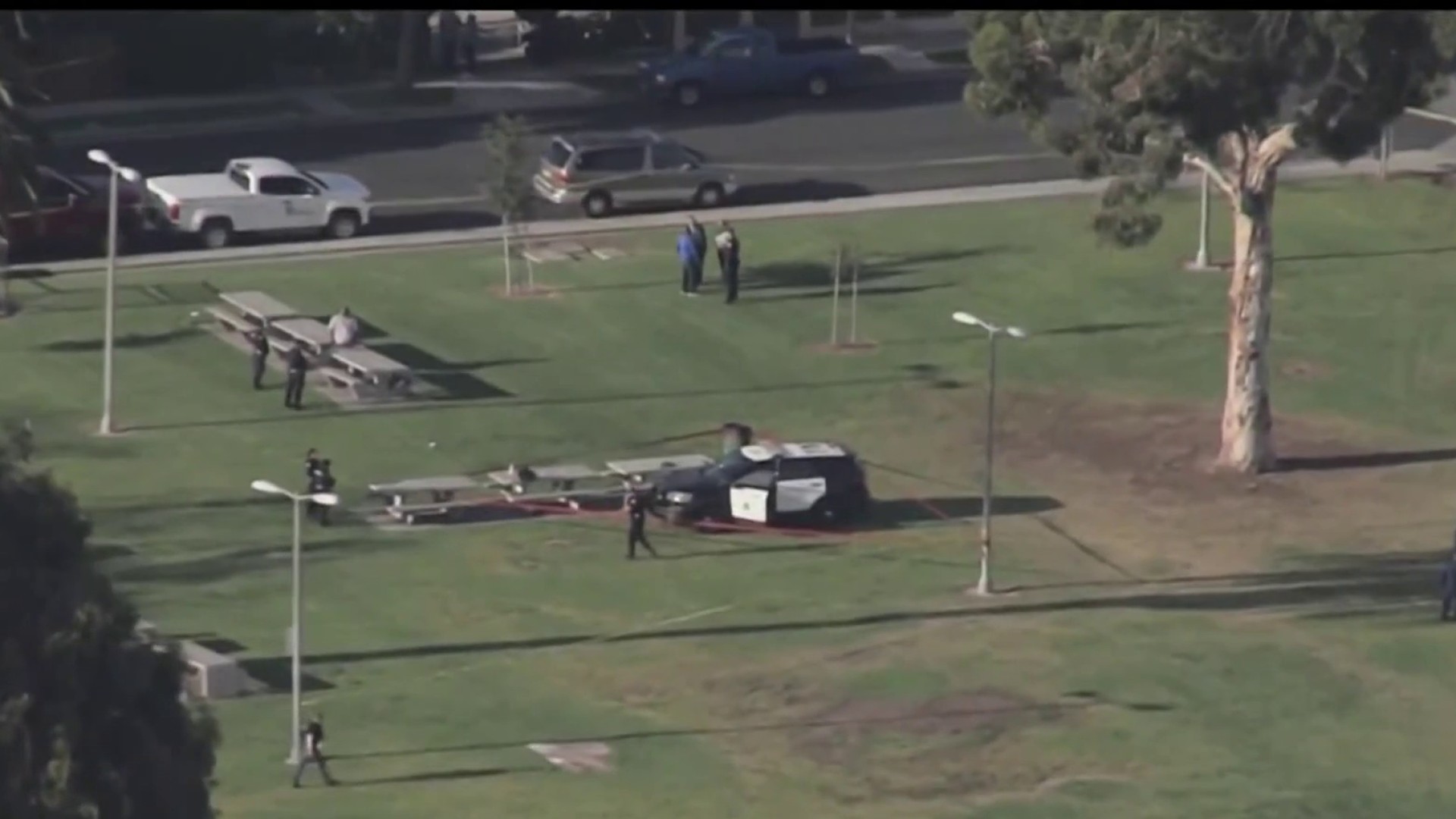It's going to be a while longer, at best, before detectives will be able to listen to audio recordings that have gone unheard for more than four decades.
Los Angeles police are seeking the tapes in the belief they contain revelations of even more killings by the infamous Charles Manson murder cult.
Last month, a court order authorized LAPD to take possession of the recordings of former Manson follower and still-imprisoned murderer, Charles "Tex" Watson. The LAPD held off while Watson put together an appeal. Wednesday, Watson obtained a "stay" order stopping the release of the tapes while his appeal is heard.
The stay was issued by Federal District Judge Richard A. Schell.
"The court sees no harm in postponing a decision," wrote Schell, noting that decades have already elapsed.
For now, the tapes remain in the custody of a Texas bankruptcy trustee, who took responsibility for them after the 2009 death of Watson's original attorney, Bill Boyd. Boyd had made the recordings.
Watson is now at the Mule Creek State Prison in Ione, near Sacramento.
He's serving a life sentence for the home invasion Tate-LaBianca slayings that horrified Los Angeles in August 1969 and that were chronicled in the best-selling book, "Helter Skelter."
The five victims at a Benedict Canyon estate included actress and expectant mother Sharon Tate. The night after Tate was killed, Leno and Rosemary LaBianca were killed in their Los Feliz home.
Local
Get Los Angeles's latest local news on crime, entertainment, weather, schools, COVID, cost of living and more. Here's your go-to source for today's LA news.
A jury found the killings had been ordered by Manson, a Hippie-era convict turned cult leader who exerted control over his band of followers.
After the Tate-LaBianca killings, Manson and his followers fled to a ranch near Death Valley.
In the years since, suspicions have arisen that others were killed at the ranch and buried in unmarked graves, though a two-day investigation in 2008 failed to uncover any human remains.
Ordinarily, attorney-client privilege would preclude law enforcement from obtaining recordings attorney Boyd made of his client Watson.
But since Boyd's death, the LAPD became aware that Watson had signed a document waiving his attorney-client privilege.
Watson wanted Boyd to cooperate with a minister writing a book on Watson, and it's believed the minister, the late Rev. Ray Hoeksra, listened to at least some of the recordings.
The book, "Will You Die for Me,' did not disclose any additional murders.
In court filings, Watson's current attorney notes that a week before the LAPD first requested the recordings, Watson sent a letter to the bankruptcy trustee directing that his entire file be forwarded to his cousin.
"A waiver of the attorney-client privilege is not a waiver of property rights or privacy," wrote attorney Kelly Puls in his motion before the East Texas District Court. Puls further characterized the LAPD effort to obtain the recordings as an "unsubstantiated witch hunt."
In a previous filing signed by Watson, he stated the recordings do not contain information about other murders, but still opposed their release on the grounds that public disclosure could be upsetting to the families of the victims of the known murders.
Initially, Watson expressed willingness to let police listen to the recordings in the presence of a court monitor, but that offer no longer appears in filings by Puls since he was retained by Watson.
Puls further asserts that releasing the recordings could violate Watson's Fifth Amendment right against self-incrimination.
But the key issue for the court to decide may be whether or not Watson completely waived his attorney-client privilege, or only a portion of it relating to the material that was made public in the book, and not what was left out.
"If this is still privileged ... LAPD may not be able to get it," said Stan Goldman, an attorney and professor who teaches courses on criminal law and evidence at Loyola Law School.
In Goldman's view, unless Watson can demonstrate that LAPD is merely on a "fishing expedition," the fifth amendment argument likely won't hold up, because there is no assertion that law enforcement coerced Watson to allow the recording.
If there's no privilege, "you can be forced to turn it over, if the government didn't force you to record it." Goldman said.
Watson's appeal names as the "Appellee" the bankruptcy trustee, Linda Payne, not the LAPD.
Schell wrote in his stay order that Payne should have an opportunity to submit a brief before he rules on Watson's appeal.
Whether the LAPD or the Los Angeles City Attorney will also file a brief has not been disclosed by police or city officials.
Follow NBCLA for the latest LA news, events and entertainment: iPhone/iPad App | Facebook | Twitter | Google+ | Instagram | RSS | Text Alerts | Email Alerts



